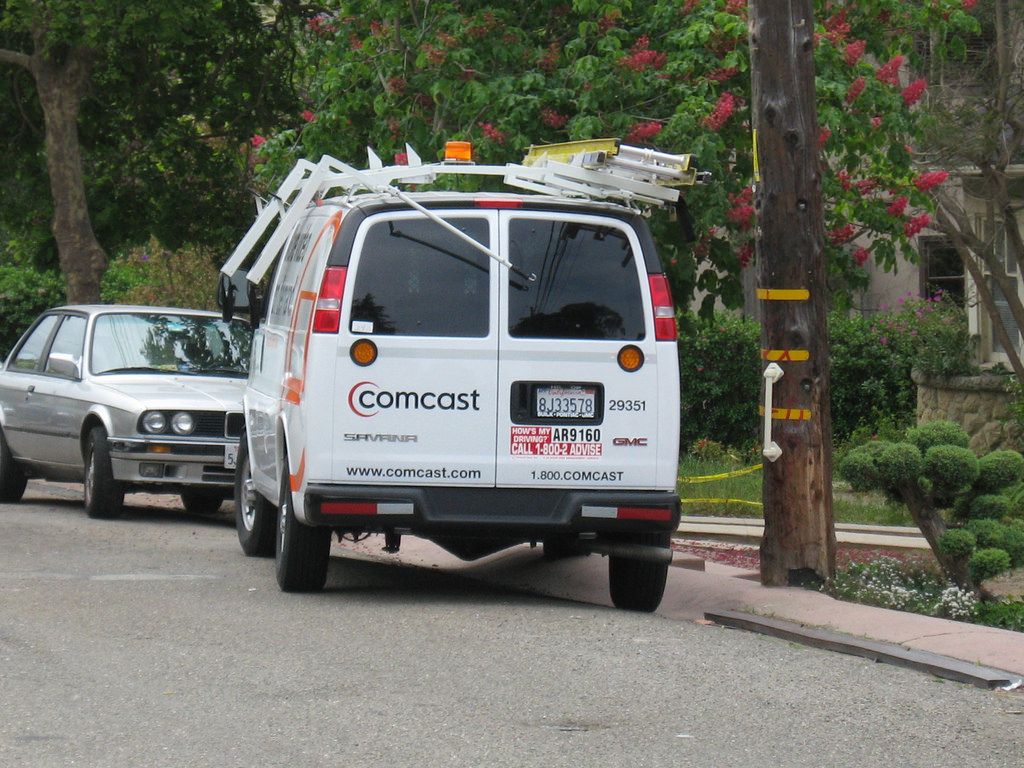A recent report by the website Ars Technica revealed that Comcast might be planning on offering internet fast lane services that would allow tech companies to have faster speeds for a price. The internet service provider (ISP) has since responded to the report, saying that this is simply not the case. It seems Federal Communications Commission (FCC) chair Ajit Pai is also committed to taking ISPs at their word, ignoring throttling incidents that occurred in the past.
In the article by Ars Technica, the publication points to the change in the wording that Comcast used when saying that it would not "discriminate against lawful content" nor would it implement "anti-competitive paid prioritization." The site noted how this would effectively allow Comcast to decide which party it would offer fast lane services to.
A spokesperson from Comcast provided CNET a response to the report with a biting denial. The company is still insisting that fast lanes would not be part of its business practices.
"Comcast hasn't entered into any paid prioritization agreements. Period," the spokesperson said. "And we have no plans to do so."
This is a rather pointed rejection of the report, but it doesn’t do much to allay the fears of users. The FCC’s apparent preference of ISPs over consumers is not helping either, with Pai previously arguing that fast lanes would be good for users and that past throttling practices were stopped by consumer outrage anyway.
In another Ars Technica report, the publication notes how Pai is using the absence of concrete evidence that ISPs would abuse their positions by throttling internet speeds or offering fast lanes to push his agenda forward. The site pointed out that Net Neutrality violations were only stopped because the Obama-era FCC was there to protect consumers and public outrage still had the power to oppose major carriers.
Pai is also ignoring examples such as the incident between BitTorrent and Comcast when the ISP throttled the site’s file-sharing services. Carriers already proved that they were capable of such acts in the past and yet the current FCC chair is confident that they would not do so again with no concrete evidence to support his argument.



 Google Cloud and Liberty Global Forge Strategic AI Partnership to Transform European Telecom Services
Google Cloud and Liberty Global Forge Strategic AI Partnership to Transform European Telecom Services  Sony Q3 Profit Jumps on Gaming and Image Sensors, Full-Year Outlook Raised
Sony Q3 Profit Jumps on Gaming and Image Sensors, Full-Year Outlook Raised  SpaceX Seeks FCC Approval for Massive Solar-Powered Satellite Network to Support AI Data Centers
SpaceX Seeks FCC Approval for Massive Solar-Powered Satellite Network to Support AI Data Centers  SpaceX Updates Starlink Privacy Policy to Allow AI Training as xAI Merger Talks and IPO Loom
SpaceX Updates Starlink Privacy Policy to Allow AI Training as xAI Merger Talks and IPO Loom  SpaceX Prioritizes Moon Mission Before Mars as Starship Development Accelerates
SpaceX Prioritizes Moon Mission Before Mars as Starship Development Accelerates  TSMC Eyes 3nm Chip Production in Japan with $17 Billion Kumamoto Investment
TSMC Eyes 3nm Chip Production in Japan with $17 Billion Kumamoto Investment  Tencent Shares Slide After WeChat Restricts YuanBao AI Promotional Links
Tencent Shares Slide After WeChat Restricts YuanBao AI Promotional Links  Instagram Outage Disrupts Thousands of U.S. Users
Instagram Outage Disrupts Thousands of U.S. Users  Jensen Huang Urges Taiwan Suppliers to Boost AI Chip Production Amid Surging Demand
Jensen Huang Urges Taiwan Suppliers to Boost AI Chip Production Amid Surging Demand  Nvidia Confirms Major OpenAI Investment Amid AI Funding Race
Nvidia Confirms Major OpenAI Investment Amid AI Funding Race  SoftBank Shares Slide After Arm Earnings Miss Fuels Tech Stock Sell-Off
SoftBank Shares Slide After Arm Earnings Miss Fuels Tech Stock Sell-Off  OpenAI Expands Enterprise AI Strategy With Major Hiring Push Ahead of New Business Offering
OpenAI Expands Enterprise AI Strategy With Major Hiring Push Ahead of New Business Offering  Elon Musk’s Empire: SpaceX, Tesla, and xAI Merger Talks Spark Investor Debate
Elon Musk’s Empire: SpaceX, Tesla, and xAI Merger Talks Spark Investor Debate  Baidu Approves $5 Billion Share Buyback and Plans First-Ever Dividend in 2026
Baidu Approves $5 Billion Share Buyback and Plans First-Ever Dividend in 2026  Palantir Stock Jumps After Strong Q4 Earnings Beat and Upbeat 2026 Revenue Forecast
Palantir Stock Jumps After Strong Q4 Earnings Beat and Upbeat 2026 Revenue Forecast  Global PC Makers Eye Chinese Memory Chip Suppliers Amid Ongoing Supply Crunch
Global PC Makers Eye Chinese Memory Chip Suppliers Amid Ongoing Supply Crunch 































